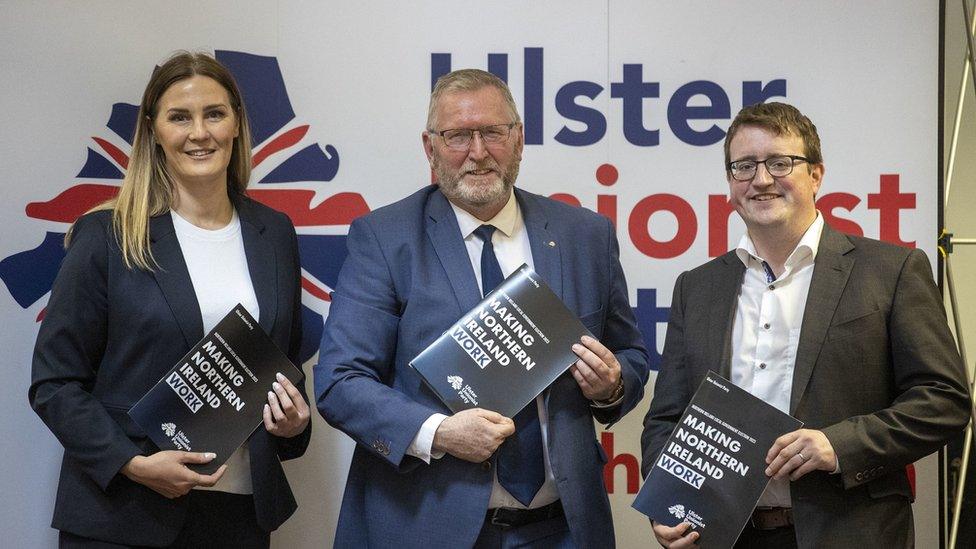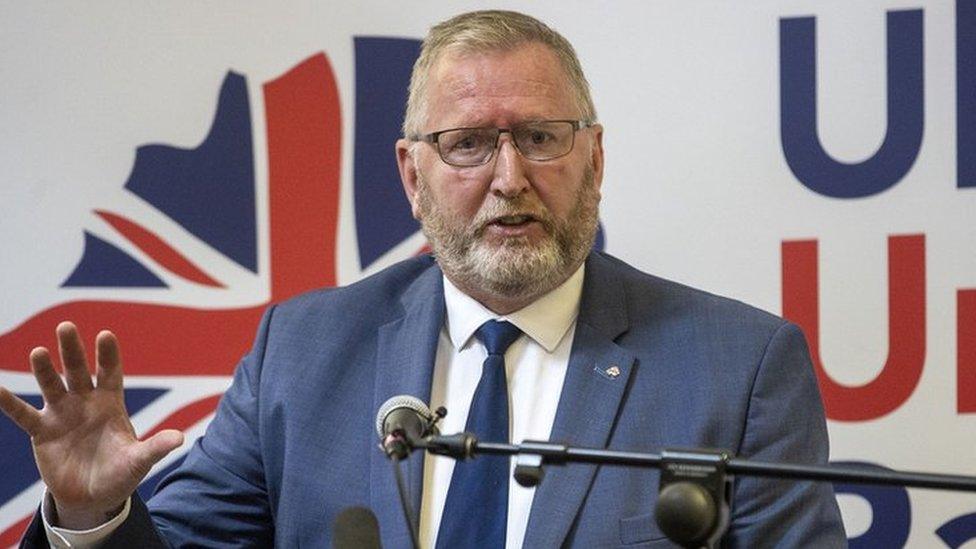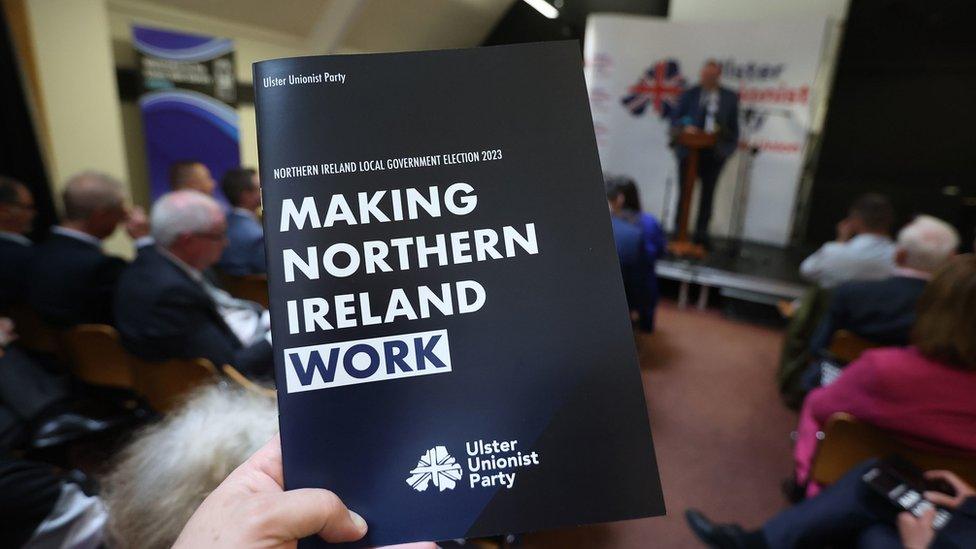NI council elections: Ulster Unionists focus on making NI work
- Published

UUP candidate Linzi McLaren, with party leader Doug Beattie and fellow candidate Nicholas Trimble at the party's local government manifesto 2023 launch at the Linen Hall Library, Belfast
The Ulster Unionist leader has directly appealed to people who are not from a traditional pro-union background to back the party in next week's local government elections.
Launching his party's manifesto, Doug Beattie, said the focus was on "making Northern Ireland work".
The party, which ruled Northern Ireland for 50 years, has fallen far behind the DUP in the last two decades.
Mr Beattie also appealed to those who previously did not vote.
"Let me make a direct plea to those of you out there who are pro-union and no longer vote, or you might be someone who is considering voting Ulster Unionist for the first time," he said.
"You can make a difference by showing moral courage."
Mr Beattie said that Ulster Unionist candidates would "fulfil their promises with integrity, with honesty, with compassion and with respect for others".
"If you are not from a traditional pro-Union community, we will respect our differences and aspirations. We will represent you regardless of your religion, sexual orientation community or ethnicity," he added.

Launching his party's manifesto, Doug Beattie said the focus was on 'making Northern Ireland work'
In the 2019 Council elections the Ulster Unionists won 75 seats. The DUP won 122.
Since then both have opposed the Northern Ireland protocol although, unlike their unionist rivals, the UUP don't agree with boycotting the Stormont institutions over the issue.
This time the Ulster Unionists are running 101 candidates and hoping to retain their position as the third largest party in local government, although Alliance overtook them in last year's Assembly election.
Doug Beattie said the coming election offered a clear choice "between delivery or dysfunction".
The Windsor Framework, he said, provided "challenges and opportunities".
"What we can now not afford is for decisions that impact on Northern Ireland to continue to be made over our heads," he added.
"That is why it is the firm belief of the Ulster Unionist Party that the Assembly and Executive must be restored to deal with the challenges still posed by the Windsor Framework and to grasp its opportunities.
"Unionism can use the platform of having Ministers and Assembly Members in place to make further progress on these issues, all while dealing with the growing pressures in our health service and other areas."

The party's manifesto was launched at an event on Tuesday
He said he did not want to see councils become "a series of mini-Stormonts where the toxicity that has frustrated the Assembly and Executive takes root".
Asked if his brand had been damaged by the controversy over a series of historic tweets he made while a serving solider he said he had owned up to his mistakes and apologised.
"If people don't want to forgive me that's up to them."
He said he had been called a leiberal unionist but there was no such thing.
"I'm moderate in my language and I'm moderate in wanting to reach out to every single corner of our society and that will never change. I will not be thrown off path."
Asked if he accepted that the Ulster Unionists' days of being the largest party were over he said "we will resurrect back to where we were. If I didn't believe that I wouldn't be standing here."
Related topics
- Published17 May 2023

- Published2 February 2024
